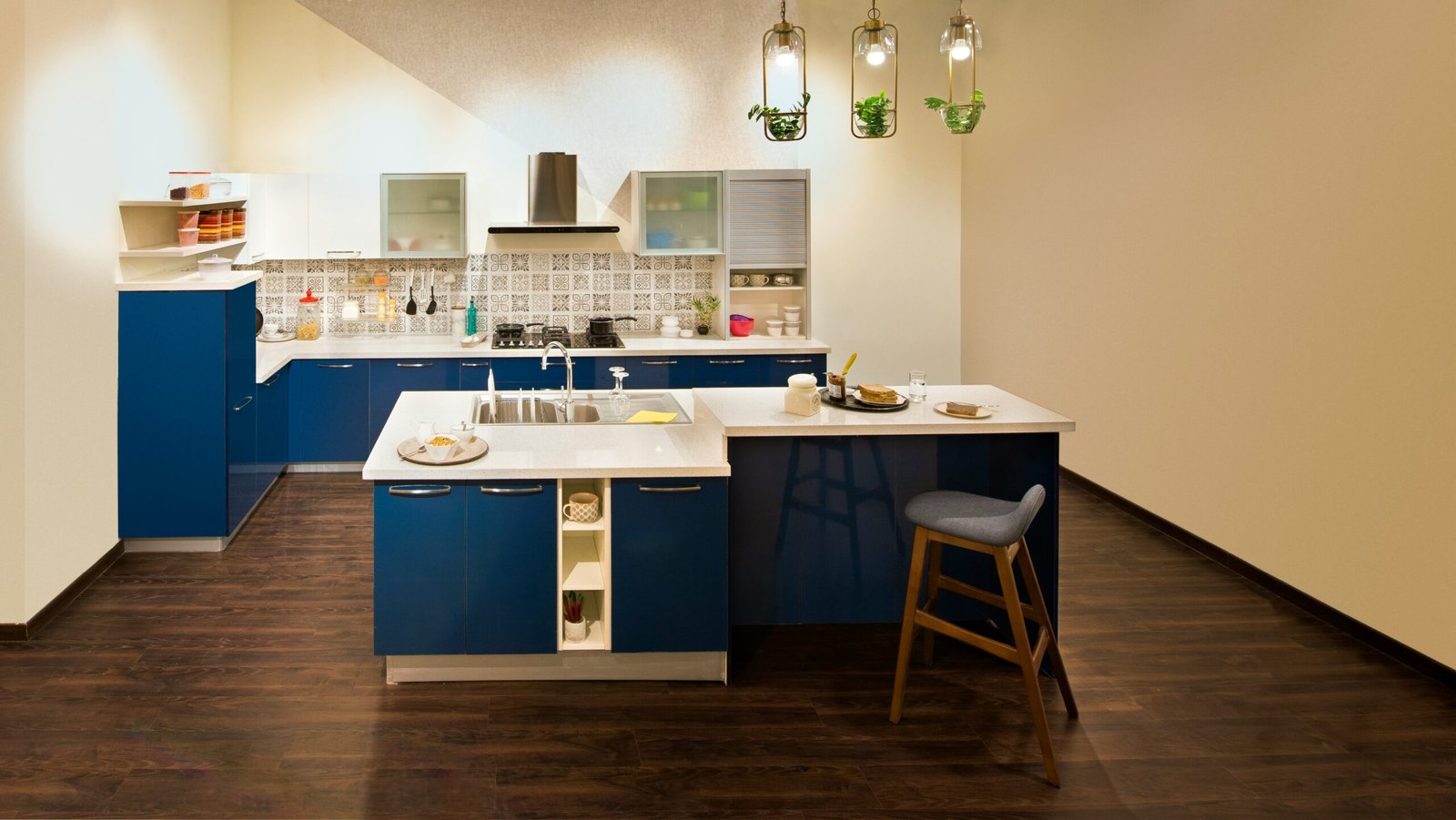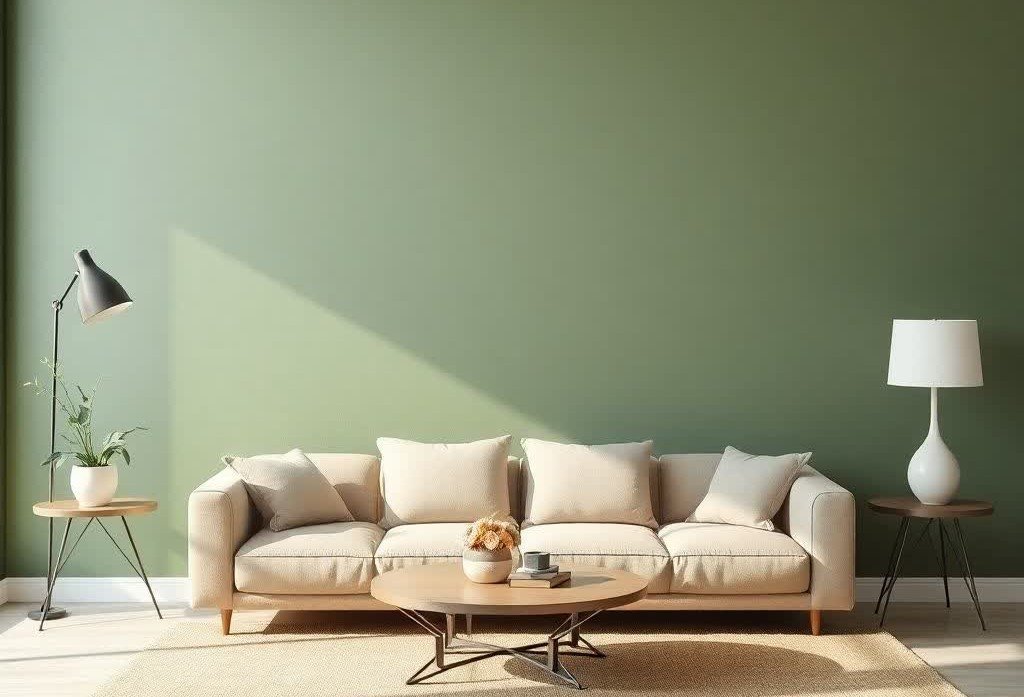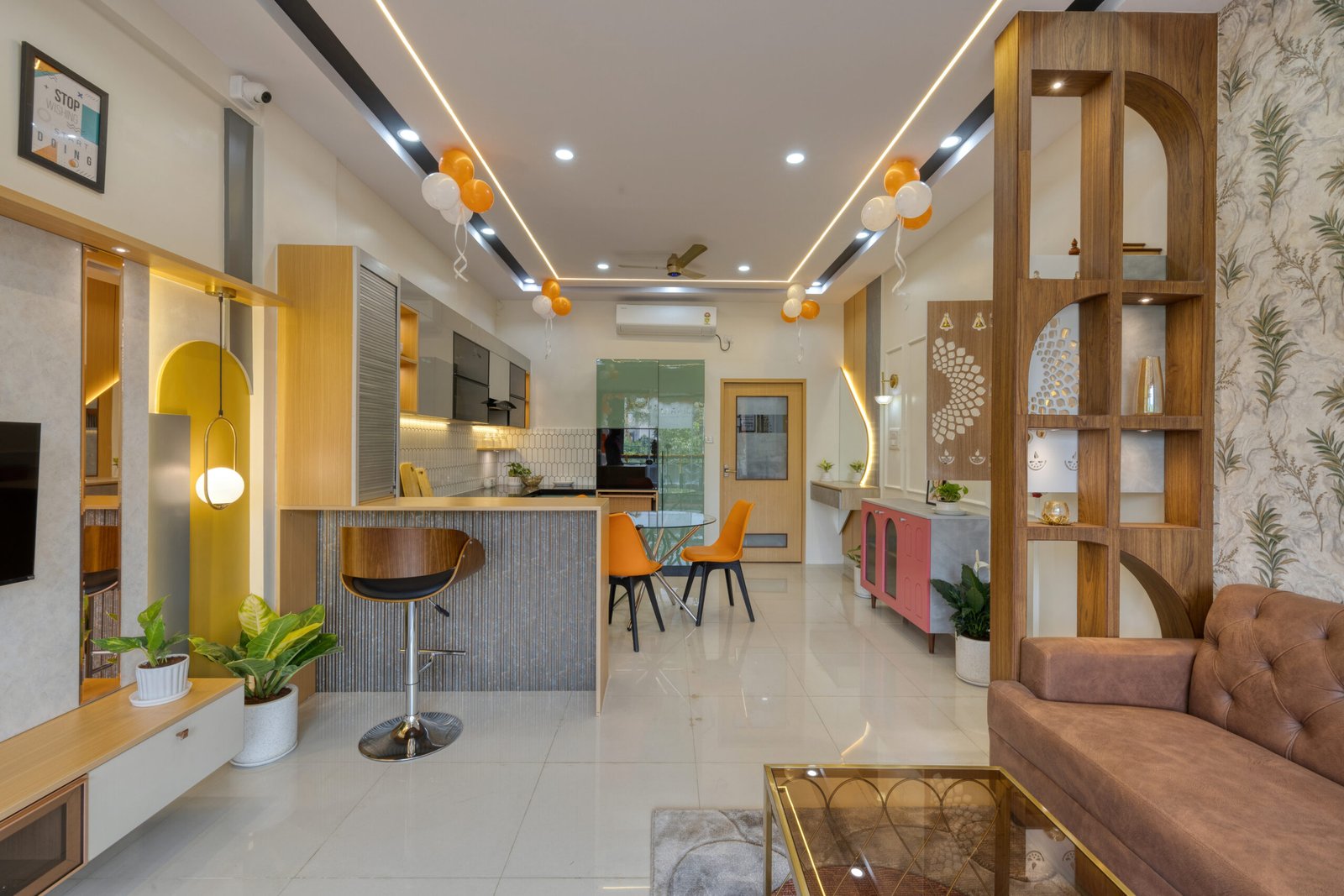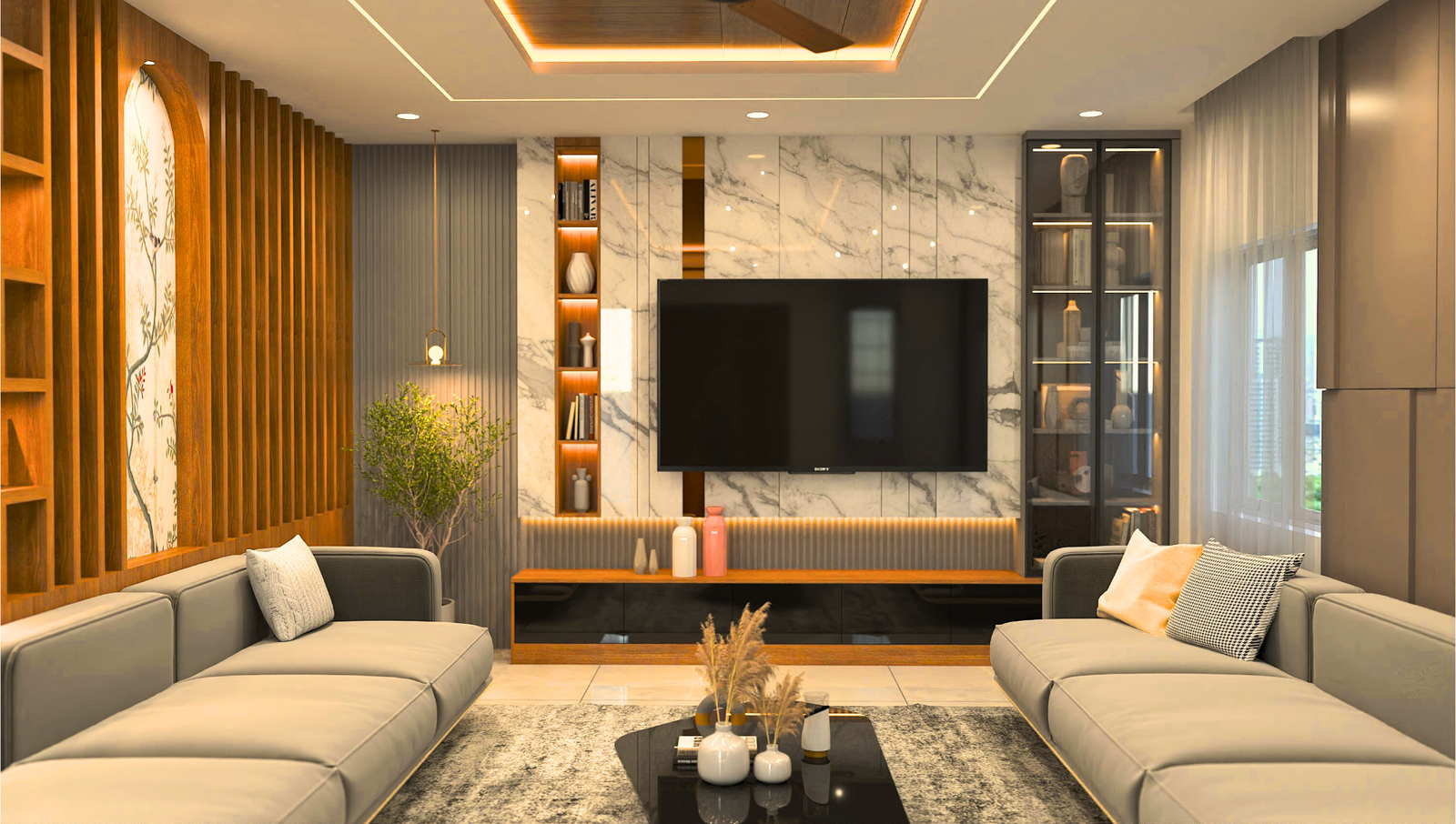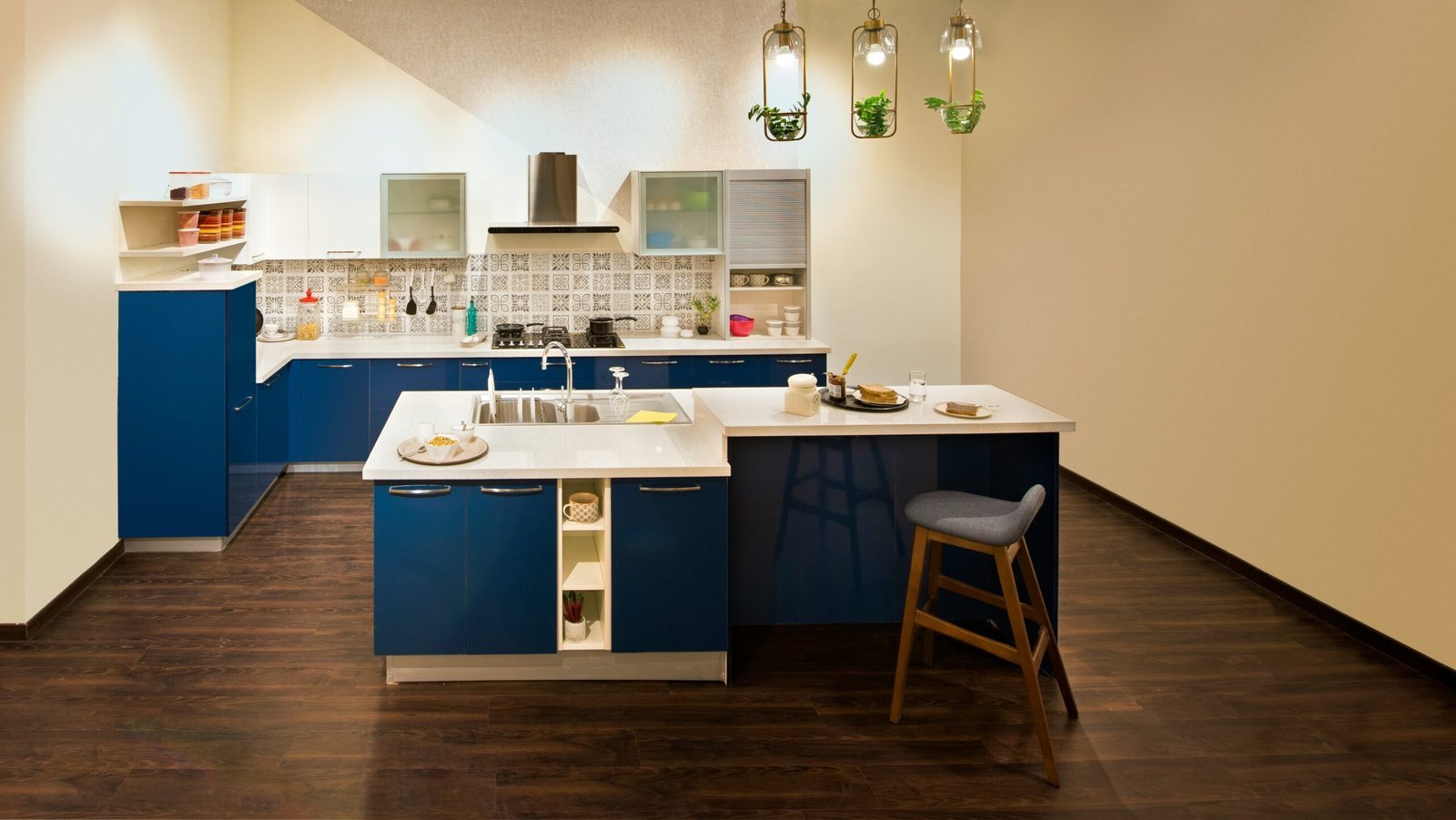
Understanding Modular Kitchens
A modular kitchen is a contemporary space designed using pre-fabricated units or modules, which can be assembled in various configurations to meet the specific needs and preferences of the homeowner. This innovative approach contrasts significantly with traditional kitchen designs, which typically rely on custom-built cabinetry and fixed layouts. The modular concept allows for a level of flexibility and personalization that is increasingly sought after in modern home design.
One of the primary components of a modular kitchen includes cabinets that are created in standard sizes and shapes, often made from materials such as plywood, MDF, or particle board. These materials not only offer durability but also provide an array of options in terms of finishes, colors, and styles, catering to a wide range of aesthetic preferences. Additionally, the use of engineered materials in modular kitchens contributes to weight reduction and ease of handling, facilitating a smoother installation process.
Beyond cabinetry, a modular kitchen consists of essential components such as countertops, sinks, and appliances that can be seamlessly integrated into the overall layout. For instance, countertops made from granite or quartz offer both sophistication and resilience against daily wear. The modular approach allows homeowners to customize every aspect of their kitchen, ensuring that it reflects their lifestyle and culinary habits.
Moreover, the design of a modular kitchen emphasizes efficient use of space, often incorporating clever storage solutions and ergonomic layouts that enhance functionality. With the growing popularity of open-concept living, modular kitchens prove especially suitable, as they can be designed to flow harmoniously with adjacent living areas. Overall, modular kitchens represent a modern, practical solution that marries both form and function, making them an ideal choice for today’s homeowners.
Benefits of Modular Kitchens
Modular kitchens offer a myriad of advantages that can significantly enhance the functionality and aesthetics of any home. One of the primary benefits of a modular kitchen is its efficient design and functionality. These kitchens are composed of pre-made cabinet units, known as modules, allowing for quick and easy installation. This modular approach provides homeowners with the ability to optimize their kitchen space effectively, especially in smaller areas. For example, a compact modular kitchen can include clever storage solutions, such as pull-out cabinets and corner units that make the best use of every inch without sacrificing style.
Another significant advantage of modular kitchens is the level of customization they offer. Homeowners can tailor layouts and storage solutions to suit their specific needs and preferences. Whether one requires additional shelves for cookware or dedicated sections for spices and utensils, modular kitchens can be designed accordingly. This flexibility ensures that each kitchen is not only practical but also reflects the homeowner’s personal style. For instance, a family who frequently hosts gatherings might opt for a larger island and more seating, while a couple may prioritize compactness without compromising on style.
Additionally, modular kitchens are known for their sleek and modern aesthetic. They come in various styles, colors, and finishes, making it easy to incorporate them into the existing décor of a home. This contemporary design can significantly enhance the overall look of the living space. A well-designed modular kitchen can create a seamless flow between the cooking area and the dining space, making it an attractive focal point within the home.
In conclusion, the advantages of choosing a modular kitchen are numerous, including efficient design, customization, optimized space usage, and modern aesthetics. These benefits make modular kitchens an excellent investment for any homeowner looking to create their dream cooking space.
Designing Your Dream Modular Kitchen
Designing a modular kitchen involves careful consideration of various elements that culminate in a functional and aesthetically pleasing space. The first step in this process is to determine the kitchen layout, which can significantly influence the work triangle—comprising the stove, sink, and refrigerator. Common layouts include U-shaped, L-shaped, and galley kitchens, each catering to different spatial requirements and workflows. For instance, a U-shaped kitchen is ideal for larger spaces, offering ample counter space and storage options, while an L-shaped design effectively maximizes storage in smaller areas.
Next, selecting the right materials and finishes is crucial for creating a durable and appealing kitchen. Various materials such as laminate, wood, quartz, and granite are popular for countertops and cabinetry. Each material comes with its own set of advantages; for example, quartz is known for its versatility and low maintenance, while natural wood adds warmth and character. The chosen finishes should also align with the overall theme and color palette of the home, providing a cohesive look.
Planning for appliances and storage solutions is another vital aspect of modular kitchen design. A thorough assessment of your cooking habits will help identify essential appliances and determine their optimal placement within the kitchen. Incorporating innovative storage solutions such as pull-out shelves, corner cabinets, and vertical storage can maximize space while ensuring that everything is within reach. It is also imperative to adhere to ergonomic standards, ensuring that counter heights and workspace layouts minimize strain during meal preparation.
Finally, integrating personal style into the design can elevate the kitchen’s appeal. Whether opting for a modern, minimalist look or a more traditional aesthetic, personal preferences can be reflected through color choices, cabinet styles, and decorative elements. By keeping functionality and personal taste in mind, you can create a kitchen that not only serves as a cooking space but also as a gathering place for family and friends.
Installation and Maintenance of Modular Kitchens
Installing a modular kitchen is a significant step towards enhancing your home’s functionality and aesthetic appeal. The installation process typically begins with a detailed assessment of the space, ensuring that the design aligns with your requirements. Professional kitchen installers are often recommended, as they possess the expertise to handle the complexities involved. However, there may be challenges to consider, such as plumbing or electrical modifications, which can require additional professional intervention.
Once the layout is finalized, the installation can commence. This usually involves assembling modular units, placing cabinetry, and integrating appliances seamlessly. It is crucial to ensure that components are leveled and aligned correctly, as this will impact both the kitchen’s appearance and functionality. Working closely with professionals will help in addressing any unforeseen issues that may arise during the installation phase. Clear communication about expectations and timelines will also help to streamline the process.
After installation, maintaining a modular kitchen is essential to keep it in prime condition. Regular upkeep can significantly extend the life of your kitchen components. For example, countertops made of materials like granite or quartz require gentle cleaning with mild detergents and soft cloths, avoiding harsh chemicals that can cause damage. Wooden cabinetry should be kept free from moisture, and periodic polishing can help maintain its shine and finish.
Keeping your kitchen organization intact is also vital. Implementing regular decluttering sessions will enhance both the appearance and the functionality of your modular kitchen. It is also advisable to stay abreast of manufacturers’ care recommendations for specific materials, ensuring your kitchen remains functional and visually appealing for years to come. By taking these steps, homeowners can enjoy the full potential of their modular kitchen, delivering both comfort and style.

